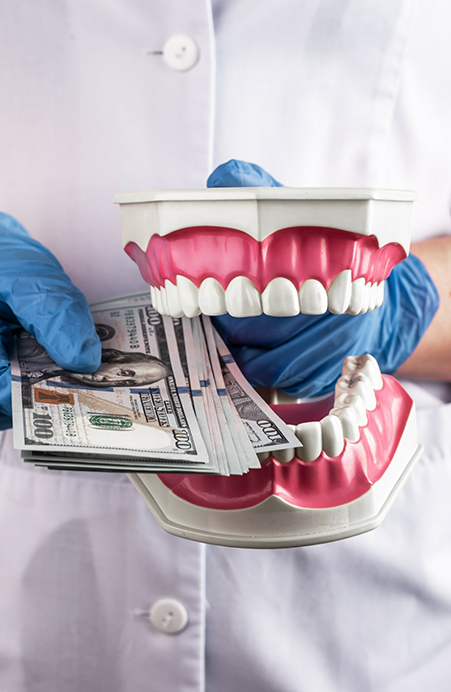Dental Insurance Greensboro
Helping You Save on Essential Dental Care

Insurance carriers normally calculate their fees (UCR). This is not a list of what the dentist should be charging, but what the individual policy or insurance company determines to pay. The insurance companies determine UCR fees by surveying dentists in a specific area. The doctor’s fee is considered to be within the UCR range if the fee does not exceed 60% of the dentists surveyed. Many other variables exist in how UCR fees are determined, and insurance companies are usually several years behind in upgrading their fees. Their fee schedules are therefore typically lower than many individual dentists in the area.
How is the benefit package determined?

The insurance carriers make a payment equal to a percentage of the UCR fees. This amount has been NEGOTIATED by the EMPLOYER purchasing the plan and depends entirely upon the amount EMPLOYERS are willing to pay toward insurance premiums. Patients are responsible not only for the remaining percentage but also for the difference between the UCR fee schedule and the doctor’s fee schedule, as well as a possible annual deductible. If you are aware of the UCR fee schedule, it will help avoid confusion. The insurance company will not send a list of their UCR fee schedule to our office. You may be able to obtain this information from your employer’s personnel department.
Can the doctor waive the co-payment?

Doctors who waive the co-payments run the risk of being charged with fraud resulting in fines, suspension of license, or other disciplinary measures. This is not a legal practice.
Let’s discuss the responsibility of the dental office:

The dental office is a third party, outside the agreement between you and your insurance carrier. We will, as a courtesy to our patients, complete and file the insurance forms with the insurance companies and take the assignment of benefits (having the insurance carrier make payment directly to us). This allows you to pay only your co-payment at the time of treatment, and we will wait for payment from the insurance company. (We do require full payment for insurance that will assign benefits only to the patient, i.e. Delta Dental.)
These are the responsibilities of the patient:

The insurance carrier is responsible to patients, and patients are responsible to the dental office. Therefore, patients are legally responsible for their entire accounts, not only the estimated patient portion if any problems arise.

